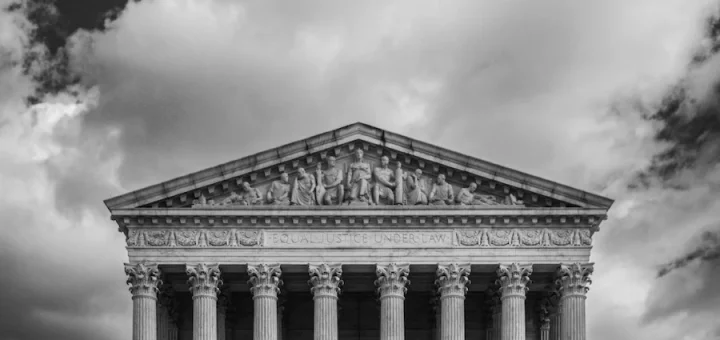Confessions, Confidentiality and Consent: Re-Visiting Therapist-Client Privilege in R v Chatillon

Content Warning: The facts of the case involve the mention of child sexual abuse.
In R v Chatillon, 2023 SCC 7 [Chatillon], the Supreme Court of Canada (“SCC”) delivered a brief oral judgment re-visiting a case-by-case privilege in the context where a patient makes criminal admissions during the course of therapeutic treatment. A 6-1 majority endorsed the sole dissenting judgment of the Quebec Court of Appeal (“QCA”) in Chatillon v R, 2022 QCCA 1072 [Chatillon QCCA], finding that where consent is given to the disclosure of a psychologist’s notes, confidentiality is waived and no privilege is recognized, even when that disclosure ultimately leads to the laying of criminal charges.
Facts
In August 2016, the accused, Olivier Chatillon, sought treatment for a substance addiction issue. During the course of his treatment, he disclosed to his therapist that he had a sexual deviance problem; specifically, during a previous relationship with a woman, the accused shared that he had performed sexual acts on her 4-year old child on two separate occasions (Chatillon QCCA, paras 11-12).
This disclosure resulted in a referral to the Institut Philippe-Pinel in Quebec (“Pinel Institute”). During an initial intake assessment at the Pinel Institute, Mr. Chatillon discussed the sexual crimes with transparency, under the assumption that: (1) his honesty was important for meaningful treatment; and (2) his communications were confidential and protected by professional secrecy (Chatillon QCCA, paras 17, 19). Subsequently, Mr. Chatillon discussed these admissions again on at least two separate occasions with different employees – a psychiatrist and a therapist – of the Pinel Institute. The latter of these encounters culminated in a discussion with Mr. Chatillon about reporting these incidents to the Direction de la protection de la jeunesse (“DYP”), a governmental agency responsible for youth protection in Quebec. Mr. Chatillon testified that he was amenable to this option as he believed that this was a means of helping the victim (Chatillon QCCA, paras 24-25).
However, after internally closing the investigation, the DYP filed a report with the Sûreté du Québec (“the police”). Accordingly, the police requested copies of psychological progress notes from Mr. Chatillon’s therapist at the Pinel Institute, including his initial admissions. Mr. Chatillon was informed of the request by the therapist, and subsequently signed a written authorization form (Chatillon QCCA, para 28). The accused testified that he only signed the authorization form believing it was to confirm that he himself made the declaration to the DYP, and because he thought that the victim continued needing assistance from the agency (Chatillon QCCA, para 30). He emphasized that he was not cautioned about the possibility of a criminal investigation (Chatillon QCCA, para 30). The accused’s authorization to disclosure ultimately resulted in criminal charges against him , and his subsequent conviction at trial (Chatillon QCCA, para 47).
Procedural History
Court of Quebec
At trial, Mr. Chatillon relied predominantly on the Wigmore test for privileged communications to challenge the admissibility of his confession.
Briefly, in order to find a case-by-case privilege rendering communications inadmissible, the Wigmore test requires the following criteria to be satisfied (Chatillon QCCA, para 36):
(1) the communications must originate in a confidence that they will not be disclosed;
(2) this element of confidentiality must be essential to the full and satisfactory maintenance of the relation between the parties;
(3) the relation must be one which in the opinion of the community ought to be sedulously fostered; and
(4) the injury that would inure to the relation by the disclosure of the communications must be greater than the benefit thereby gained for the correct disposal of litigation.
The accused’s main argument was that the admissions were divulged in confidence, and owing to the unique characteristic of professional secrecy inherent in therapist-client relationships, his disclosure made in the course of seeking therapy should be inadmissible.
The trial judge rejected Mr. Chatillon’s argument, and found that Mr. Chatillon failed at the first, second, and fourth stages of the Wigmore test. He rejected the existence of confidentiality primarily based on the fact that Mr. Chatillon took part in the process of reporting the communications to the DYP (Chatillon QCCA, para 37). He also found that Mr. Chatillon’s consent to the police request was valid, noting that the written authorization form clearly states that the police were the intended recipients of the notes (Chatillon QCCA, para 47).
Quebec Court of Appeal (QCA): Two Distinct Approaches
A 2-1 majority of the QCA overturned the trial judge’s decision, finding that all criteria of the Wigmore test were made out. Vauclair J. delivered the majority reasons.
For the majority, the fourth criterion of the Wigmore test was the crux of the analysis. Vauclair J. emphasized the importance of considering the Charter value of the protection against self-incrimination in assessing whether the admissions were privileged, notwithstanding that the admissions were made to non-governmental actors (Chatillon QCCA, paras 58, 60). Significantly, Vauclair J. noted that (Chatillon QCCA, para 71):
it would be unjust and contrary to Charter values to use statements against the appellant that were made to discuss a matter of sexual deviance as part of a treatment process voluntarily undertaken with an organization that treats sexual deviance.
By contrast, the dissenting opinion focused solely on the issue of consent. Mainville J. found that Mr. Chatillon expressly waived confidentiality by consenting to the disclosure of the therapist’s notes, thereby failing to meet the first criteria of the Wigmore test (Chatillon QCCA, para 83).
SCC Decision
In brief oral reasons, the majority of the SCC endorsed Mainville J’s dissenting reasons at the QCA, and found that the accused waived confidentiality when he consented to the disclosure of the therapist’s notes, especially in respect of the police. On this basis alone, they allowed the appeal and restored Mr. Chatillon’s conviction (Chatillon, para 1).
Côté J. dissented, and would have dismissed the appeal for substantially the same reasons as the majority of the QCA (Chatillon, para 2).
Analysis
A Brief and Appropriate Analysis
While brief, by endorsing Mainville J.’s analysis on the issue of consent, the SCC majority’s reasoning is both principled and appropriate. It does, however, lack clarity in terms of demystifying the law as it concerns the future treatment of therapist-client relationships in considering case-by-case privilege, especially against the backdrop of professional regulatory legislation that lacks sufficient legislative guidance.
Consent Versus Confidentiality
The SCC majority’s endorsement of the dissent is highly welcomed. It appears that the majority of the QCA placed significant emphasis on the fact that the admissions were the sole evidence of guilt, thereby anchoring their analysis in the fourth prong of the Wigmore test in finding the communications privileged. In my view, this is puzzling for two reasons.
First, it appears to colour the majority of the QCA’s Charter values analysis. In turn, this appears to find undue emphasis in eclipsing the very real harm at issue in the case: sexual violence against children. Notably, Vauclair J states: “While sexual deviance is not always a crime, the fact remains that the very nature of the admissions in this case lie at the heart of the problem and of the help that was being sought for the problem” (Chatillon QCCA, para 71). Yet, in this case, it was not contested that the sexual deviance in question was a crime. In fact, as appropriately recognized by the dissent, there is no dispute as to the truthfulness of the admissions (Chatillon QCCA para 79).
Second, it appears to lack sufficient guidance from governing case law. For example, even for solicitor-client privilege, where communications between a lawyer and their client are criminal in themselves or are made with a view to the commission of a crime, no privilege is recognized (see, e.g Descôteaux et al v Mierzwinski, [1982] 1 SCR 860). Given that solicitor-client privilege is a class privilege with an almost absolute status (see, e.g (National Revenue) v Thompson, 2016 SCC 21, para 18), it is unclear why the majority seemingly lowered this threshold for therapeutic relationships, especially because they are to be assessed on a case-by-case basis.
To that end, the QCA majority’s general apprehension towards a conviction turning on sole evidence is reasonable, particularly given the liberty interest at stake in criminal proceedings. However, it seems to be peripheral in the case at hand because the majority barely dealt with the issue of consent at all. This appears to undermine the first two parts of the Wigmore test, rendering the Charter values analysis under the fourth prong unnecessary, as held by Mainville J (Chatillon QCCA, para 83).
Mainville J. more appropriately dealt with the “limits to confidentiality” that were discussed with Mr. Chatillon, as this was a live issue regarding consent (Chatillon QCCA, para 23). While Mr. Chatillon argued that he was never cautioned that he may be ultimately charged with a crime, evidence accepted by an employee of the Pinel Institute at trial noted that there was a general discussion outlining the limits of confidentiality between Mr. Chatillon and the professionals at the Pinel Institute (Chatillon QCCA, para 23). Accordingly, the issue was reduced to one of credibility. Mainville J. accepted the trial judge’s findings on the basis that Mr. Chatillon (Chatillon QCCA, para 85, emphasis added):
“consented in writing to the disclosure to the SQ, that he knew the SQ is a police force that investigates crimes, that the sexual assaults to which he admitted are crimes … and it defies common sense to believe the disclosure of a sexual assault to the SQ could not lead to a police investigation and potential criminal charges”
Mainville J.’s reasoning is preferable to the majority’s because: (1) the majority appears to gloss over the issue of consent entirely; and (2) it logically considers how importing such a subjective standard may have unforeseen, material consequences for the future application of case-by-case privilege, especially where it concerns balancing society’s indisputable interest in addressing sexual violence against children.
Confidentiality is Not Absolute
It bears emphasizing that confidentiality in therapeutic relationships is important because it is both a hallmark and a cornerstone of the relationship itself (see for example, M(A) v Ryan, [1997] 1 SCR 157, para 35). Nonetheless, as appropriately conceded by the majority of the QCA, confidentiality is not absolute.
For example, there are existing legislative provisions outlining how and when confidentiality may be departed from in professional settings. In Quebec, one relevant provision is the Code des professions, RLRQ, c C-26, art 60.4, which applies to regulated professionals such as psychologists (Chatillon QCCA, para 74). In summary, the provision outlines that: (1) professional secrecy, which informs confidentiality, may only be waived in specific circumstances, such as with the client’s authorization; or (2) without authorization, when required to prevent an act of violence, given that there exist reasonable grounds to believe there exists a serious risk of death or serious injury; and even in such circumstances, the professional may only communicate in specific circumstances, such as to the person(s) at risk of being exposed to this harm.
Unfortunately, it appears that the majority of the QCA takes for granted that the provision does not find meaningful latitude in this case for one significant reason: it only contemplates the departure from professional secrecy in circumstances of future danger. It is silent on legal direction when a therapeutic professional is confronted with a criminal admission that has a past application (Mr. Chatillon’s past sexual crimes), where there is a possibility of ongoing danger (the unknown status of the victim at the time of the admissions). This appears to underpin the majority’s line of reasoning in surmising that the employees of the Pinel Institute did not have a legal obligation to contact the DYP, because the victim was no longer in danger (Chatillon QCCA, para 48).
In my view, this is problematic because it seemingly imports quasi-investigative powers to non-governmental actors by suggesting that the employees themselves should have undertaken their own investigation. The material concern here is that both legislation and key case law on privilege have been generally silent on the issue of departing from confidentiality in circumstances of past harm, even when considering class privileges such as solicitor-client (see, for example Smith v Jones, [1999] 1 SCR 455). In the absence of legislation and past precedent dealing with the issue, it appears that the majority simply overlooked how introducing such a new framework for a case-by-case privilege would create more uncertainty in the law. Namely, the majority’s reasoning would have introduced a wholly underdeveloped framework that provides no accompanying guidance on the application of investigatory procedures or protections for: (1) the professional seemingly tasked with the investigation; (2) the client making possible criminal admissions; or, (3) the victim of the crime.
Conclusion
The SCC reached the correct result. However, in my view, it would have been preferable to see a more comprehensive analysis that provides more meaningful guidance for therapeutic professionals who may find themselves confronted with criminal admissions that fall outside the scope of Quebec’s provincial legislative exceptions to professional secrecy. Ideally, the province will respond to this case by enacting more comprehensive legislation, as the current framework fails to recognize the legal and ethical implications for the professionals, patients, and most importantly, the victims in these situations.
This article was edited by Farah Abdel Haleem.







Join the conversation